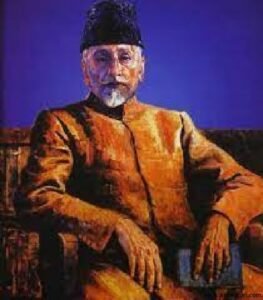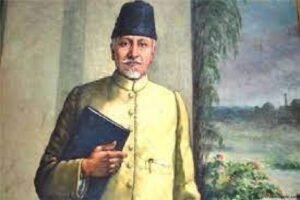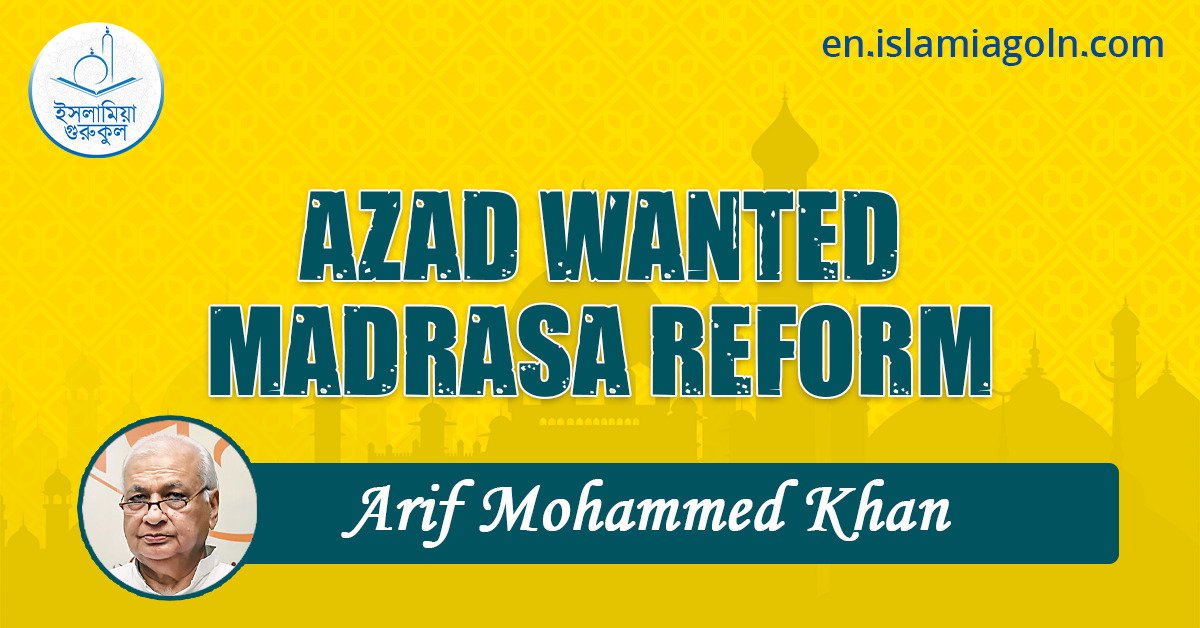Today’s topic of discussion: AZAD WANTED MADRASA REFORM

AZAD WANTED MADRASA REFORM
On 20 January 2009. the Human Resource Development Minister announced at the annual conference of States Minority Commissions, the decision to set up a Madrasa Board similar to the Central Board of Secondary Education (CBSE) This, he asserted, would help modernise madrasa education and entitle madrasa graduates for Government jobs.
The proposal attracted criticism and opposition from almost all well- known madrasas, and finally the Muslim Personal Law Board, a body consisting mostly of madrasa clerics, passed a resolution in its meeting on 8 February 2009 opposing the proposal and describing it as an attempt to ‘interfere in our religious affairs’.
This is not the first time that the official proposal to reform madrasa education has been shot down by the clergy. Earlier, Maulana Abul Kalam Azad had made serious efforts, as Education Minister, to introduce reforms, but failed to persuade the madrasa authorities to accept them.

In February 1947 the Maulana had convened a meeting in Lucknow, which was attended by the representatives of all leading madrasas. Addressing the gathering, the Maulana traced the origin, growth and decline of Islamic education all over the Muslim world and impressed the need for urgent reforms to make madrasa education relevant to contemporary times.
In his speech, the Maulana said that every system of education travels through three stages. The first is concerned with systematic recording and codification of all the knowledge that has been accumulated in human minds. The second stage is the process of refinement and development. leading to building a culture of education. In the third stage, it seeks to attain excellence and perfection, and spreads it through the medium of teaching and research.
Maulana Azad said that Islamic education had passed through these stages by the twelfth century. But after that the history of Islamic education took a strange turn that could only be described as a period of decline of intellectual and educational tradition. The tree of Islamic education which was blooming and bearing fruit, suddenly started to wither.
The decline manifested itself in the form of rigid and static curriculum replacing reasoning and critical inquiry as means of acquiring knowledge Since then, barring a few exceptions, Muslim scholars have failed to make any original contribution in the growth and expansion of knowledge and confined themselves to the writing of commentaries and abridged versions of the works of earlier scholars. The old system of education based on mla, that is learning through lecture and critique, yielded to learning by rote, prohibiting any questioning of the text.
Maulana Azad asserted that madrasa education in India had started in this period of intellectual decline and represented all its drawbacks and deficiencies. What the madrasas were teaching in the name of Maqoolat (logic and philosophy) were antiquated subjects that ceased to attract the human mind for more than 200 years. Even the method of teaching the language left much to be desired. He regretted that students, after spending fourteen years in madrasas, did not develop the ability to write ten lines, and no Arab would recognize the Arabic that they wrote.
Finally, Maulana appealed to the madrasa representatives to be sensitive and responsive to the demands of the age and retrofit their curriculum by including the modern sciences. He warned that failure to do would only aggravate the clash between progress and conservatism and that history showed that conservatism could not hope to succeed in this struggle.
Maulana Azad did not have any luck in 1947, but his words of wisdom eminently deserve a re-look to make madrasa education purposeful.

2 thoughts on “AZAD WANTED MADRASA REFORM”